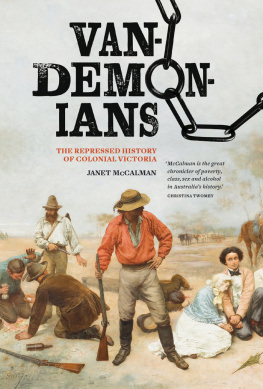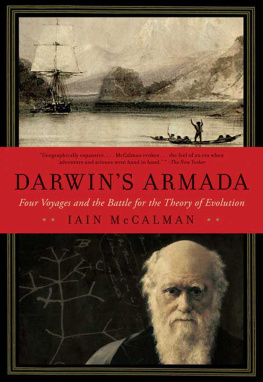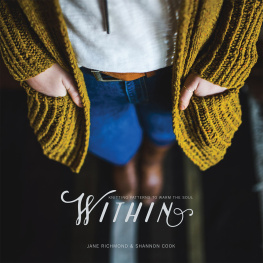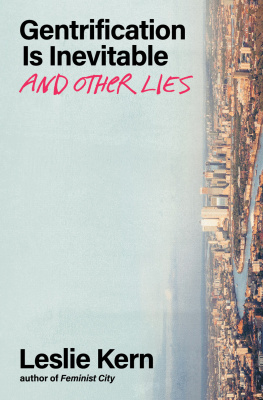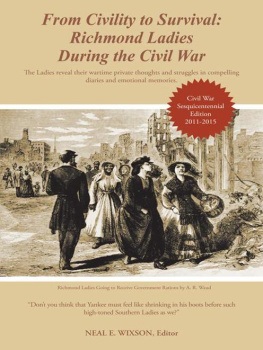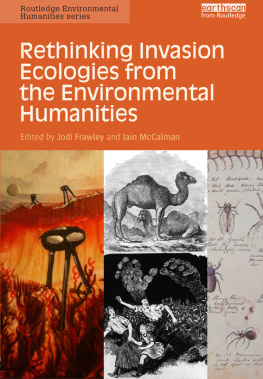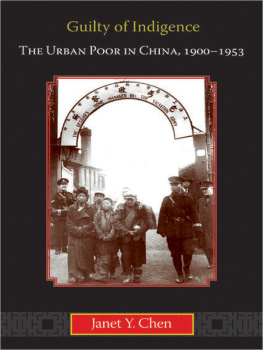One of the best books recently published in Australian history.
Judith Brett, Overland
Struggletown is marvellous. Tragedy and farce, comedy and drama, pride and shame, they are all to be found in Janet McCalmans wonderfully vivid and compelling account of everyday life and politics in the inner Melbourne working-class suburb of Richmond.
John Knott, Labour History
McCalmans history of 20th century Richmond is first class. She has effectively blended oral with conventional history to produce a unique account of Richmond from 1900.
The Age
The sort of book that gives flesh to the bones of history. McCalman uses the most rewarding source of allpeople.
Newcastle Herald
There can be little doubt that Struggletown was and remains one of the most significant interventions in how Australian historians imagine writing about place, class, gender, politics and the tenor of ordinary lives. Struggletown was concrete and humane at a time when other people writing about working people didnt seem to have met many. In part because of the richness of its oral histories, it encouraged us to approach the people of the past on their own terms. It told us the benefit of listening. It was warm, brilliantly written, aimed at a public beyond the academy, and determined to do justice to its subject and its subjects.
Mark Peel
Seamus OHanlon was a young student working in the Richmond Hill Cellars when the book was released. He recalls the immense popular reception amongst locals, who felt pride that their Richmond was worthy of a book and given a new dignity and interest through its gaze. Ultimately this is arguably the most important legacy of an historical work based upon oral history interviews; that the people who are the living historical source material for the book agree with the way they are presented. And just possibly the eulogy to resilience, empathy and respect that is Struggletown gave one historian, and the community she wrote about, the opportunity to be re-imagined as something greater than they hitherto conceived.
Carla Pascoe-Leahy
Both informative and entertaining. The authors insight into the broad spectrum of this working-class communitys battle to survive is a monument to professional research.
Ballarat Courier
Explores the impact of history on private experience by following a generation born under the lingering blight of the 1890s depression. They see two world wars, the even greater economic disasters of the 1930s, the post-war boom, and the first wave of non-British immigration.
New Zealand Star
STRUGGLE
TOWN
Private and Public Life in Richmond 19001965
JANET McCALMAN
MELBOURNE UNIVERSITY PRESS
An imprint of Melbourne University Publishing Limited
Level 1, 715 Swanston Street, Carlton, Victoria 3053, Australia
www.mup.com.au
First published by Melbourne University Publishing 1984
First paperback edition 1985
Penguin edition 1988
Reprinted 1994
Published by Hyland House Publishing 1998
This edition published 2021
Text Janet McCalman, 2021
Design and typography Melbourne University Publishing Limited, 2021
This book is copyright. Apart from any use permitted under the Copyright Act 1968 and subsequent amendments, no part may be reproduced, stored in a retrieval system or transmitted by any means or process whatsoever without the prior written permission of the publishers.
Every attempt has been made to locate the copyright holders for material quoted in this book. Any person or organisation that may have been overlooked or misattributed may contact the publisher.
Cover design by Philip Campbell Design
Cover photo: Richmond. Childrens playground, circa 1935. F. Oswald Barnett Collection, State Library Victoria.
Back cover photo: Three children with dolls, circa 1935. F. Oswald Barnett Collection, State Library Victoria.
Typesetting by Solo Typesetting, South Australia
Printed in Australia by McPhersons Printing Group
9780522877182 (paperback)
9780522877199 (ebook)
For my parentsBy the same author
Journeyings: The biography of a Middle Class Generation 19201990 (1993)
Sex and Suffering: Womens Health and a Womens Hospital (1995)
What Happens Next? Reconstructing Australia After Covid-19, co-edited with Emma Dawson (2020)
Awards
Struggletown
1984 Shortlisted for Age Book of the Year
1985 Ernest Scott Prize, University of Melbourne, for best book in Australasian History
1985 Victorian Premiers Award for Australian Studies
1985 Fellowship of Australian Writers Local History Award
1992 The Max Crawford Medal, the Australian Academy of the Humanities
Journeyings
1993 Age Non-fiction Book of the Year
1994 Shortlisted for South Australian Premiers Award
1994 Shortlisted for Victorian Premiers Award for Australian Studies
Sex and Suffering
1999 Victorian Community and Local History Award, best publication category winner
1999 Winner NSW Premiers History Awards in Community and Regional History
1999 Shortlisted for Age Non-fiction Book of the Year
Journalism
1997 Shortlisted for Editorial and Opinion category, Walkley Awards for Journalism
1999 Media Award from the College of Educational Administration (Vic) for outstanding contribution to public discourse on education
Contents
Preface
It is almost forty years since Struggletown was first published, and in that time the Richmond it depicted has all but disappeared. Most of the people who spoke in the book have passed away, with their places taken by a new, sophisticated middle and upper class. Richmond has become very expensive, and the old Struggletowners, if they could see the suburb now, would not believe their eyes.
Those I interviewed whose lives had always been a struggle declared that they had never been so well off since they went on the Age Pension. In old age the worst was behind them: one had made sure she bought her first home in a street with trees and would lie in bed at night counting her household taps after a lifetime of having only one cold tap in the back yard. Her friend had repaired the hole in the hall floorboards that her sons university friends blithely hurdled. That her son had gone to university was a miracle, made possible by post-war state investment in education; her education had been snatched through secret reading in bed by candlelight.
By the early 1980s, Richmond was a world of widows, their men having died young after a lifetime of hard work, and for some, hard living. The newer families were mostly migrants from southern Europe, with another population beginning to arrive from South East Asia. Richmond hosted two population waves: original inhabitants moving to better housing and prospects in the suburbs, as they had been doing since the late 1940s; and Anglo-Celtic middle-class professionals, trendies, moving in to renovate. It was a profound class switch.


